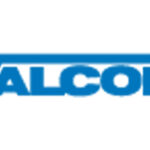Dustin Campbell didn’t spent the last decade attending AV integration industry conferences and listening to speakers prognosticate on dwindling product margins and the need for service revenue.
Philip Muscatello hasn’t read several years’ worth of AV integration industry trade articles about the necessity for firms to embrace network-centric solutions.
Having done their due diligence, however, the two investors knew the challenges faced by AV integrators when they acquired majority shares of Sudbury, Mass.-based Adtech Systems, a perennial CI Industry Leaders firm that reports $45 million revenue as a 2015 Top 10 Higher Education Market Integrator.
The purchase came after nearly a year of research and conversations with then Adtech CEO David Gormley. The concern when selling controlling shares of a firm he has built up since 1988 to investors is the perception that “it will be flipped in a few years,” Gormley acknowledges, “but that couldn’t be further from the truth.”
Adtech CEO Campbell and senior VP Muscatello bring fresh sets of eyes to the industry, and it’s noteworthy that they see opportunity where most of the industry has generally just felt pressure. Prices of equipment are most certainly coming down, Muscatello acknowledges, but volume is increasing. Companies are buying more AV solutions and outfitting more rooms for video communication. Meanwhile, when it comes to systems “complexity is going up.”
That complexity, Campbell says, gives engineering-centric integration firms a distinct advantage because he sees clients increasingly aware that AV providers’ value lies in their ability to develop complex solutions. “We have one of the largest engineering staffs in the area and the country.”
Related: Gormley Excited for Adtech’s Future
So a trend that seems to be driving many integration firms out of business provides Adtech with potential for growth, according to Muscatello. “Installations are becoming bigger and more complex. [Engineering] skillsets, however, are a relatively scarce commodity.”
Gormley, whose new role as senior VP of business development essentially allows him to continue to run the technical side of the business, agrees that accentuating Adtech’s engineering expertise is what the 27-year-old firm needs. “Every AV company’s biggest challenge is building a solid engineering team, especially in New England where it’s difficult to recruit. It makes it hard for newcomers to gain traction because it’s hard to find engineering support. I look at how busy our engineering staff is and it makes me wonder how competitors can survive with one, two or three engineers.”
With Campbell and Muscatello at the helm, Gormley sees Adtech benefiting from a more organized sales-to-engineering team relationship, one that can more efficiently sell and leverage the firm’s competitive advantages. After Adtech increased its revenue by about $10 million from 2013 to 2014, bringing in additional management was becoming a necessity anyway. “New ownership with skin in the game is a winning combination,” Gormley says.
Add it all up and the expectation among Campbell, Muscatello and Gormley is that Adtech’s revenue will double within three to five years. Some will dismiss Campbell and Muscatello as new to the industry, unappreciative of the challenges in front of them and essentially naïve. That can’t be said about Gormley and with a minority share and managing role he still has plenty of skins in the game.
“David Gormley isn’t going anywhere,” Campbell says. “He said he’ll be here for the next 20 years.”
It won’t take that long to find out if his new business partners, newcomers to the industry, do indeed recognize opportunities that most AV integrators categorize as obstacles.















